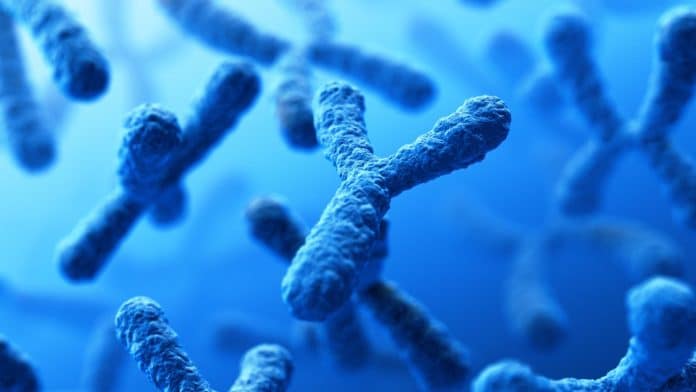Sex chromosomes determine our biological sex. Men generally have one X and one Y chromosome, while women have two Xs. However, some men also have an extra X or Y chromosome – XXY or XYY.
It may not be immediately apparent without a genetic test. Men with extra X chromosomes are sometimes identified during investigations into delayed puberty and infertility, but most are unaware of their condition. Men with an additional Y chromosome are taller as children and adults but otherwise have no distinctive physical characteristics.
A new study by the universities of Cambridge and Exeter suggests that around one in 500 men could be carrying an extra X or Y chromosome – most of them unaware. This puts them at increased risk of type 2 diabetes, atherosclerosis, and thrombosis.
Scientists analyzed genetic data collected on over 200,000 UK men aged 40-70 from UK Biobank. 356 among them were found carrying an extra X chromosome or an extra Y chromosome.
Only a small minority of these men had a diagnosis of sex chromosome abnormality on their medical records or by self-report: fewer than one in four (23%) men with XXY, and only one of the 143 XYY men (0.7%) had a known diagnosis.
The scientists discovered that men with XXY have a substantially higher risk of reproductive problems, including a three-fold higher risk of delayed puberty and a four-fold higher risk of being childless, by combining genetic data with normal health information. These males also exhibited reduced testosterone levels in their blood and, ordinarily, male hormones. The reproductive function of men with XYY appeared to be normal.
Men with either XXY or XYY had an increased risk of developing various health problems. They had three times the risk of type 2 diabetes, six times the risk of venous thrombosis, three times the risk of pulmonary embolism, and four times the risk of chronic obstructive pulmonary disease (COPD).
However, it remains unclear why an extra chromosome should increase the risk or why the risks were so similar irrespective of which sex chromosome was duplicated.
Yajie Zhao, a Ph.D. student at the Medical Research Council (MRC) Epidemiology Unit at the University of Cambridge, the study’s first author, said: “Even though a significant number of men carry an extra sex chromosome, very few of them are likely to be aware of this. This extra chromosome means they have substantially higher risks of several common metabolic, vascular, and respiratory diseases – diseases that may be preventable.”
Professor Ken Ong, also from the MRC Epidemiology Unit at Cambridge and joint senior author, added: “Genetic testing can detect chromosomal abnormalities fairly easily, so it might be helpful if XXY and XYY were more widely tested for in men who present to their doctor with a relevant health concern.”
“We’d need more research to assess whether there is additional value in wider screening for unusual chromosomes in the general population, but this could potentially lead to early interventions to help them avoid the related diseases.”
Professor Anna Murray at the University of Exeter said: “Our study is important because it starts from the genetics and tells us about the potential health impacts of having an extra sex chromosome in an older population, without being biased by only testing men with certain features as has often been done in the past.”
Journal Reference:
- Zhao, Y. et al. Detection and characterization of male sex chromosome abnormalities in the UK Biobank study. Genetics in Medicine; 9 Jun 2022; DOI: 10.1016/j.gim.2022.05.011
